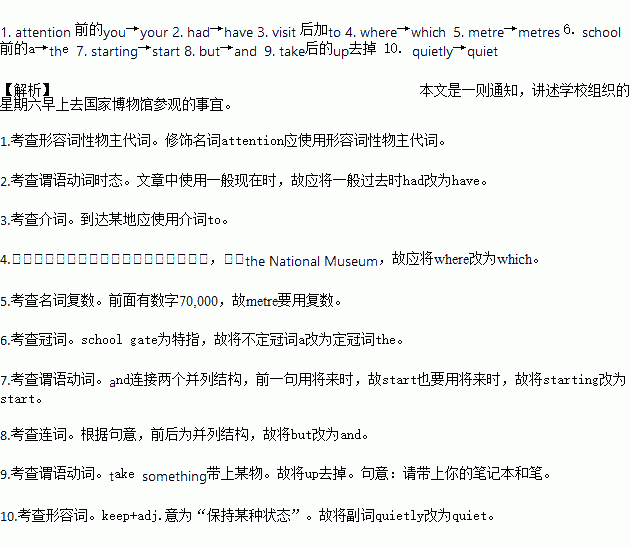题目内容
假定英语课上老师要求同桌之间交换修改作文,请你修改你同桌写的以下作文。文中共有10处语言错误,每句中最多有两处。每处错误仅涉及一个单词的增加、删除或修改。
增加:在缺词处加一个漏字符号(∧),并在其下面写出该加的词。
删除:把多余的词用斜线(\)划掉。
修改:在错的词下画一横线,并在该词下面写出修改后的词。
注意:1.每处错误及其修改均仅限一词;
2.只允许修改10处,多者(从第11处起)不计分。
May I have you attention, please? I had something important to tell you. Our school will organize a visit the National Museum of China on Saturday morning, December 10. The National Museum of China, where lies to the east of Tiananmen Square, covers an area of about 70,000 square metre. We will gather at a school gate and starting out at 7:30 in the morning. Our visit starts at 8 o’ clock but it will last three hours. Please take up your notebooks and pens with you. In addition, during the visit, please keep quietly.
Do remember: 7:30, Saturday morning and the school gate. That’s all. Thank you.

